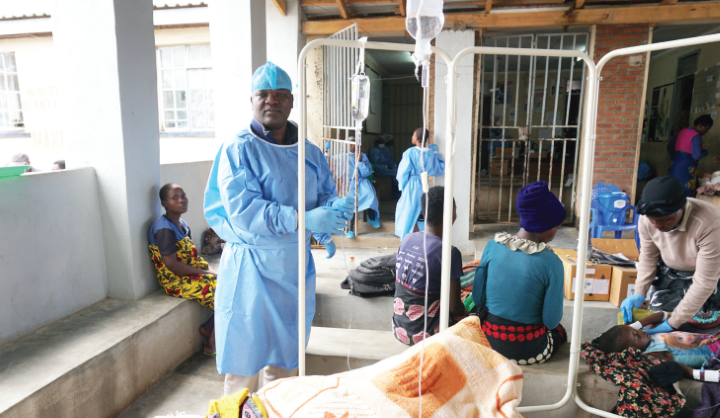Whither cancer centre?

Cancer, says oncologist Leo Masamba, is a curable disease.
It is possible to doubt Masamba—he is just an expert who has never lived with the disease.
But the story of Blantyre-based Chikhulupiriro Ng’ombe makes Masamba’s take believable.
Ng’ombe was diagnosed with cancer in 1992 when he was eight years old. He underwent an eight-month treatment in the same year and, today, he is healthy, married and running an organisation called Cancer Survivors Centre.
Yet, some still do not believe cancer is curable.
“Why do doctors insist it is curable when almost every cancer patient I know, ends up dead?” wonders Limbikani Chirwa, a Blantyre-based resident.
It is possible to understand Malawians who reason like Chirwa, says Ng’ombe.
“Cancer is a very scary disease. I have lived with it and I understand. But it can be cured. The reason people die from cancer is not because it is scary. Rather, most people are too poor to get treatment in reputable hospitals,” he says.
His story tells it all.
After his parents noted some changes in his health, they rushed him to Queen Elizabeth Central Hospital (QECH) where he was diagnosed with leukemia (cancer of the blood).
He was lucky to have been taken to hospital in good time. Experts say for every 10 people who go to hospital, eight of them do so in critical condition. This means delays in diagnosis are another challenge fuelling cancer deaths.
After the early diagnosis, the young Ng’ombe had to be flown to South Africa for treatment.
“My father was a lawyer and he had money and investments. But with my hospital bills reaching K3.8 million, the family had to let go of a number of investments just for me to live,” he says.
And in those days, K3.8 million was of far much greater value than it is now.
But few Malawians were born lucky like Ng’ombe. In a country where almost half of the population lives below the poverty line, spending K3.8 million on hospital bills is unthinkable.
Last year in August, High Court judge Rachel Sikwese told The Nation that she lost a sister to cancer because doctors could not treat her locally.
“Her death pains me so much to this day,” she said.
Her wails barely differ from those Geoffrey Zigoma—a musician who died of cancer last year—gave in an interview with The Nation last year.
“Our major hospitals take too long to diagnose the problem,” said Zigoma, who had the chance to get treatment in India after 18 months of chemotherapy at QECH.
He added: “The environment in which patients get treatment and care is not user-friendly. The wards are congested with people who end up dying of treatable conditions because they cannot afford to fly to South Africa, Tanzania or any other country which offers advanced treatment.”
In response to these challenges, Sikwese founded Cancer Support Foundation (CSF) which, last year, donated K4 million to a cancer ward project at QECH.
While local hospitals have registered milestones in screening cancer, the perspectives of the disease’s incurability are frustrated by lack of modern technologies for healing it.
Local hospitals only offer chemotherapy—a drug-based treatment for specific cancers. In an earlier interview, Ministry of Health spokesperson Henry Chimbali told The Nation that government designated Kamuzu Central Hospital in Lilongwe for a purpose-built cancer centre with hi-tech radiotherapy equipment. Radiation therapy kills cancer cells that are multiplying to prevent further spread of the disease.
So, how far has government gone on this $14 million project?
“We have sent proposals to the Indian Government under the Indian Credit Line where there is $25 million remaining which may be used for this project since the Cancer Centre requires $14 million,” Chimbali says.
He explains that government has also sent the proposal to the Norwegian, Chinese and Egyptian embassies on supporting the facility with equipment and human resources as regards capacity building.
He adds: “A proposal was also sent to the PPC Commission to go under the Public Private Partnership (PPP) arrangement where the International Financing Corporation (IFC) has shown interest to finance it.”
Although government is still waiting for responses from all these organisations, Chimbali says government will also go ahead to advertise for the contractor of the project to start construction before June this year to use money in the budget.
“We already have the designs, the place to construct the facility and government has been committing some funds towards the project which may be used to kick-start the construction,” he says.
Somehow, the project substantiates the fact that cancer is curable.
Otherwise, views of people like Chirwa will always stand out.





